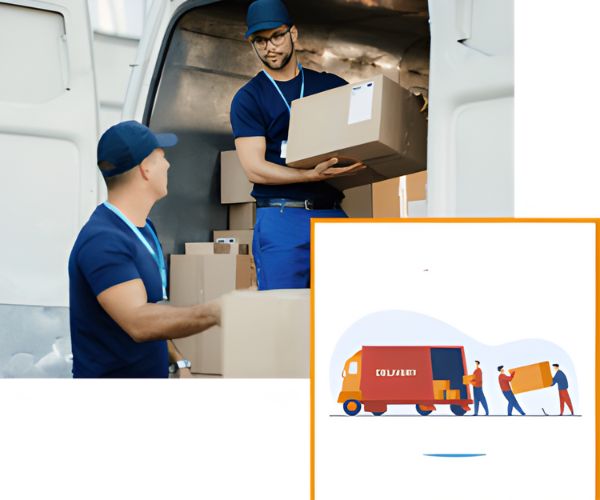What Importers Need to Know About Canada’s Prohibited Goods
Importing goods into Canada involves navigating a complex landscape of laws and regulations. Among these rules, understanding what constitutes prohibited goods is crucial for any importer. Prohibited goods are items that are entirely banned from entering Canada due to safety, legal, or environmental concerns. Failing to comply with these regulations can result in fines, delays, and even legal consequences.
This comprehensive guide dives into Canada’s prohibited goods regulations, the importance of compliance, and how a licensed customs broker can make the process simpler. Whether you’re new to importing or a seasoned trader, understanding these details will save you time and resources.
What Are Prohibited Goods?
Prohibited goods are items that are not allowed to be imported into Canada under any circumstances. These restrictions exist to protect public safety, preserve the environment, and maintain legal and ethical standards.
Categories of Prohibited Goods
- Illegal Substances: Drugs and narcotics not authorized for legal use in Canada.
- Weapons and Explosives: Items like specific firearms, stun guns, and explosives are strictly banned.
- Endangered Species Products: Items like ivory, exotic leather goods, or anything that violates wildlife protection laws.
- Counterfeit Products: Goods that infringe intellectual property laws.
Prohibited goods differ from restricted goods, which may be imported under specific conditions or permits. Misunderstanding this distinction can lead to compliance issues.
Why Understanding Prohibited Goods Matters
Complying with Canada’s import rules is non-negotiable. Importing prohibited items can lead to:
- Fines and Penalties: Monetary punishments for non-compliance.
- Seizure of Goods: Confiscation of illegal items by customs officials.
- Legal Consequences: In severe cases, legal action against the importer.
A licensed customs broker can provide invaluable guidance to ensure you adhere to these regulations.
Role of Licensed Customs Brokers in Ensuring Compliance
Customs regulations can be overwhelming, especially for businesses involved in international trade. This is where customs brokers play a pivotal role.
Who Are Licensed Customs Brokers?
A licensed customs broker is a professional certified to handle customs clearance processes. These experts act as a bridge between importers and customs authorities, ensuring that all legal requirements are met.
Benefits of Working with a Customs Broker
- In-Depth Knowledge: Customs brokers understand Canadian import laws, including prohibited goods regulations.
- Document Preparation: They ensure all paperwork is accurate and complete, minimizing delays.
- Risk Mitigation: Brokers identify potential compliance risks and offer solutions.
- Streamlined Processes: Their expertise helps navigate customs procedures efficiently.
By working with a licensed customs broker, importers can focus on their business operations while leaving the complexities of customs clearance to the experts.
How to Identify Prohibited Goods
Before shipping goods to Canada, importers must verify that their products comply with Canadian regulations. Here are some steps to ensure compliance.
1. Review Canada’s Prohibited Goods List
The Canada Border Services Agency (CBSA) provides detailed information about prohibited and restricted goods. Review this list to confirm whether your items are eligible for import.
2. Use Expert Advice
If you’re unsure about a product’s eligibility, consult with an international customs broker. These professionals have the expertise to clarify doubts and ensure compliance.
3. Conduct Pre-Import Assessments
Evaluate your products before shipping. A customs clearance broker can help identify potential red flags and provide actionable solutions.
Commonly Confiscated Prohibited Goods
Despite clear guidelines, many importers unknowingly attempt to import prohibited goods. Some of the most commonly confiscated items include:
- Counterfeit Clothing and Accessories: Items that violate trademark laws.
- Illegally Sourced Wildlife Products: Goods made from endangered species.
- Hazardous Materials: Items such as certain chemicals or radioactive materials.
- Unauthorized Food Products: Perishable goods that fail to meet Canadian safety standards.
Partnering with an experienced customs broker helps you avoid these pitfalls.
Customs Clearance and Prohibited Goods
Customs clearance is a critical part of importing goods into Canada. It involves verifying the legality of items and ensuring all paperwork is in order.
How Customs Brokers Help
- Pre-Clearance Preparation: Ensuring all documentation is correct before goods arrive.
- Liaison with Authorities: Acting as a direct point of contact with customs officials.
- Real-Time Tracking: Providing transparency by tracking shipments throughout the process.
Brokers streamline the process by leveraging their relationships with customs authorities and their knowledge of the system.
Tips for Staying Compliant
1. Educate Your Team
Ensure that everyone involved in the supply chain understands Canada’s import rules. Training sessions or informational materials can prevent costly mistakes.
2. Verify Supplier Practices
Communicate with your suppliers to confirm they comply with Canadian import laws. Missteps at their end could impact your operations.
3. Use Technology for Monitoring
Many customs brokers offer digital tools for monitoring shipments. These platforms help flag compliance risks early.
4. Update Your Knowledge
Canada’s import regulations evolve. Stay informed by subscribing to updates from the CBSA or consulting your customs broker services provider.
The Difference a Licensed Customs Broker Makes
Importing goods without the expertise of a licensed customs broker can be risky and time-consuming. Their role is to ensure your operations are smooth, legal, and efficient.
What Sets Licensed Brokers Apart
- They possess certification and training in Canadian customs laws.
- Their understanding of trade routes and compliance challenges is unparalleled.
- They offer tailored advice, especially for high-volume trade routes like those between the U.S. and Canada.
Hiring a licensed customs broker is an investment in compliance and operational efficiency.
How we Simplify the Process
We specialize in helping importers navigate the complexities of Canadian customs regulations. Our team is equipped to handle all aspects of customs clearance, ensuring your shipments comply with the law.
Why Choose Us?
- Expertise in U.S.-Canada trade routes.
- Integrated e-solutions for real-time shipment tracking.
- Comprehensive knowledge of prohibited goods regulations.
Whether you’re importing small volumes or managing large-scale logistics, our team is ready to support your needs.
Contact Us Today
Don’t let compliance challenges derail your business. Trust us to simplify your import processes and keep your operations running smoothly. Reach out to us today for expert advice and customized solutions.














Post Comment